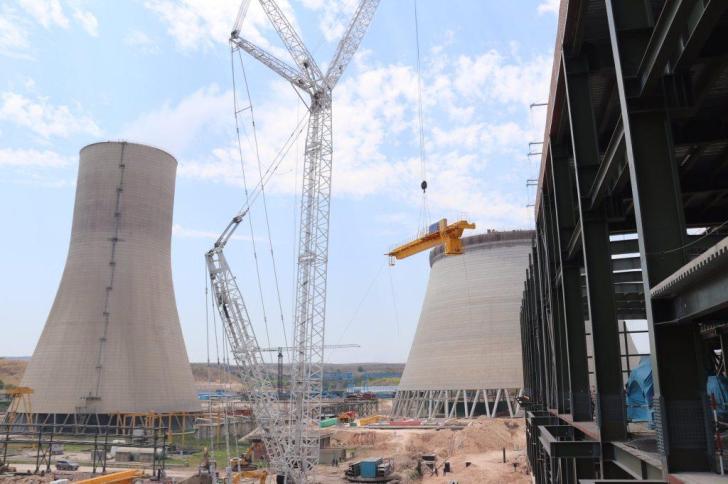News / National
Zimbabwe to build two new generators at Hwange
30 Jul 2024 at 06:22hrs |
0 Views

The Zimbabwean Government has commenced preparatory work on developing two new units at Hwange Power Station to enhance the nation's base load capacity. This follows the commissioning of Hwange Units 7 and 8 in August of the previous year, which helped mitigate reduced power output from the Kariba hydroelectric plant due to low water levels.
The Zambezi River Authority reported that in early June 2024, live water levels were at 12.8%, a significant drop from 29.1% the previous year. The effects of climate change have made reliance on hydro-power sources less dependable.
During the first quarter of the year, ZRA maintained the 16 billion cubic meters water allocation to ZESA and Zambian utility ZESCO, which results in a combined annual average power production of 428MW, split equally at 214MW per utility.
To meet growing electricity demands driven by increased activity in sectors like mining, manufacturing, and agriculture, as well as rising household consumption, the Government is pursuing new projects. By 2030, electricity demand is expected to reach approximately 5,177MW.
Finance, Economic Development, and Investment Promotion Minister Professor Mthuli Ncube noted that the completion of the Hwange Units 7 and 8 has significantly improved energy supply. The Government plans to further invest in and reform policies to meet growing electricity demand, including the development of Hwange Units 9 and 10.
Additionally, risk mitigation incentives are provided to boost the bankability of solar projects by independent power producers (IPPs). Investments in clean energy sources will be scaled up to enhance sector resilience against climatic shocks.
The Government will also continue investing in mini-hydropower plants, solar projects, and bio-digesters under the Rural Electrification Fund to increase grid capacity, boosting economic activity even at grassroots levels. Partnerships with the private sector for off-grid systems are planned to provide electricity to communities away from the national grid.
The Zambezi River Authority reported that in early June 2024, live water levels were at 12.8%, a significant drop from 29.1% the previous year. The effects of climate change have made reliance on hydro-power sources less dependable.
During the first quarter of the year, ZRA maintained the 16 billion cubic meters water allocation to ZESA and Zambian utility ZESCO, which results in a combined annual average power production of 428MW, split equally at 214MW per utility.
Finance, Economic Development, and Investment Promotion Minister Professor Mthuli Ncube noted that the completion of the Hwange Units 7 and 8 has significantly improved energy supply. The Government plans to further invest in and reform policies to meet growing electricity demand, including the development of Hwange Units 9 and 10.
Additionally, risk mitigation incentives are provided to boost the bankability of solar projects by independent power producers (IPPs). Investments in clean energy sources will be scaled up to enhance sector resilience against climatic shocks.
The Government will also continue investing in mini-hydropower plants, solar projects, and bio-digesters under the Rural Electrification Fund to increase grid capacity, boosting economic activity even at grassroots levels. Partnerships with the private sector for off-grid systems are planned to provide electricity to communities away from the national grid.
Source - The Herald
Join the discussion
Loading comments…






























